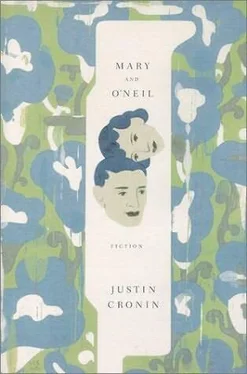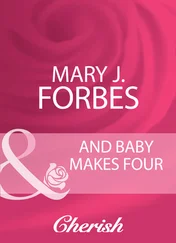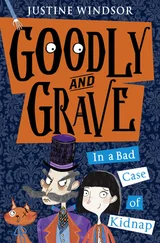And yet, there was something uncertain about them. It was hard to say why. Their love was eclectic and sensual-O’Neil, for instance, sometimes placed his nose against Mary’s cheek simply to smell her skin, or bathed in the water she had just used-and their lovemaking surprised them with its ease. So many years of nervousness; why had no one told them that sex was meant to be funny, and that they could say the things they wanted to and ask for what they liked? They were happy, it was true; they had reached a point of happiness in their lives, a place of rest after a journey of some difficulty, and they frequently marveled at this fact: how, of all the people in the world, and all the lives they might have led, they had somehow found this one together. O’Neil had been raised in upstate New York, Mary in Minnesota. How unlikely was it that they would have ever met at all? They had told the story many times, retracing their steps from the private school where they’d come to work (French for Mary, English for O’Neil), through a maze of time and space to the snowy towns of their youth. They recounted it all with pleasure, chiming in to finish one another’s sentences or highlight some detail to keep the telling fresh, but didn’t this simple exercise, good natured though it was, testify to the fragility of their good fortune? O’Neil’s parents had died when he was in college, killed in a car wreck; Mary’s family was far away, a race of chilly Germans on the plains. Wouldn’t such people regard any human attachment, the possibility of happiness itself, with skepticism? So perhaps that was it; perhaps it was their very happiness that made them afraid.
For a while the challenges of their house distracted them, its insatiable appetite for their labors. They pleased themselves by working hard, and then, later, with the idea that the house was haunted. The notion delighted them at once, even as they knew it was foolish; but once the idea arose-it was Mary, over dinner, who first suggested it-evidence bounded into view. There was, of course, the Christmas card O’Neil had found. (Coil-spring ear laps? What unfinished business with the knife?) And there was no question that the house at times hinted at some benign inhabitation. Lights blazed and dimmed; ceiling fans reversed themselves of their own volition; doors swung open and closed without warning, pushed by unaccountable drafts. Hidden lines of connectedness seemed to snake through the structure; they had discovered, for example, that the toilet lid in the second-floor bath would sometimes slam when they turned on the kitchen disposal. In the basement-an inhospitable, gravelike hole where they stored old boxes and did the laundry, with crumbling plaster walls and miles of sketchy wiring stapled to the joists-pockets of frigid air lingered, and once, mysteriously, the washing machine had overflowed. Later, O’Neil found a tube sock stuck in the basin drain, and certainly it was possible that it had found its way there by accident, but wasn’t it also true that this occurrence, like all the others, bore the qualities of a prank?
Then, in December, on a night after Christmas in the third year of their marriage, Mary awoke from a troubled sleep and realized that for some time she had been listening to the sound of footsteps. Strangely, she felt no alarm; she had been anticipating this, or something like it. She lifted the covers and stepped gingerly into the cold hall, where the apparition waited. It was a young woman-she appeared to be draped in a cloud of stars-and her blond hair was done curiously: not in some elaborate style of the past, but cut unevenly at the ends, as if by pinking shears. On her slender body she wore a smooth white smock that fell to her ankles; her feet were bare. “We got your card,” Mary said, thinking this would be a good icebreaker, but the woman-just a girl, Mary realized-gave no reply. A wardrobe stood at the end of the hall, where Mary and O’Neil kept old clothing that no longer fit but, for one reason or another, couldn’t be parted with. The girl smiled at Mary and stepped into the wardrobe, sealing the door behind her.
Then O’Neil was at her side. “What are you doing?”
“It’s a girl,” Mary whispered. “She’s in there.”
O’Neil returned to the bedroom and reappeared with the tennis racquet he kept under his side of the bed, an old Jack Kramer he had bought at a yard sale for a quarter.
“I don’t think she’s here to play tennis,” Mary said.
O’Neil stepped back and cocked his racquet, though Mary could tell he was doing this only to humor her. “Open it when I say,” O’Neil commanded.
Mary sighed with irritation and opened the door. Of course there was no one; Mary had already figured this out. O’Neil poked the head of his racquet through the row of hanging coats and dresses. “Yoo-hoo,” he said.
“She was in there.”
“You were dreaming,” O’Neil said. “You were asleep, sweetie.”
“She has fled the scorn of the unbeliever,” Mary said.
He yawned and kissed her on the forehead. “Perhaps that’s so.”
“I saw what I saw,” Mary said.
Under the covers of their bed Mary, sleepless, gazed up into the darkness. She knew that O’Neil was probably right-as a girl she had been a sleepwalker of some renown, once letting herself into the neighbors’ house to make a peanut-butter-and-jelly sandwich at their kitchen table-and yet she felt that her experience in the hallway could not be explained away so easily. The details were striking, as was her memory of them. The girl had smiled; she wore a smock; she had an awful haircut. It was puzzling but not frightening, and Mary lay awake for some time, replaying the images in her head. Then, as she watched, a twinkling, reflected light began to dance on the ceiling above her face. This, too, seemed a part of the night’s enchantments-it seemed to be the light of angels-but then Mary rose and went to the window and saw that it had begun to snow; the falling flakes had tripped the motion sensors over the back door, bathing the yard with cones of snowy light.
By the next morning a foot of snow had fallen, and a cold wind blew. School was still closed for Christmas break, and Mary and O’Neil passed the day baking pointlessly enormous batches of tollhouse cookies and watching movies on cable television. Late in the afternoon, when the storm had ended, they bundled up and walked the streets of their neighborhood. They moved heavily through the deep snow, holding one another up as they stumbled onward. Everything was quiet; the scene they beheld was one of glasslike stillness, a diorama of a snowy town. In their neighbors’ yards lay the abandoned evidence of the day’s amusements: snow forts, snowmen, sleds and saucers scattered everywhere. But now it was too cold, and all the children had gone inside. At a distance they heard the plows lumbering through the neighborhood streets, the chains on the tires ringing.
Back at the house they removed their wet coats and blue jeans, and O’Neil made tea. In boxers and socks he carried their mugs into the living room, where Mary waited on the sofa, a blanket drawn up to her chin.
“I want a baby,” Mary declared.
O’Neil put the tea on the table. His glasses were fogged, and he drew them to the tip of his nose and lifted his eyes to her face. “Right now? The stores are closed.”
“I mean I want to make one.”
O’Neil grinned, enjoying himself, as she’d expected he would. “I thought we’d have spaghetti.”
“Fine, make fun,” Mary said, and removed the blanket to show him that she, too, was wearing only her underwear. “We have work to do.”
A baby: of course that was what they would want. They had discussed this before, when they had first begun to talk of marriage. They had agreed that children were a part of their future-it was, in fact, one of the things that had attracted them to one another, this willingness to let such things happen in due course-and that they would know when the time was right.
Читать дальше












